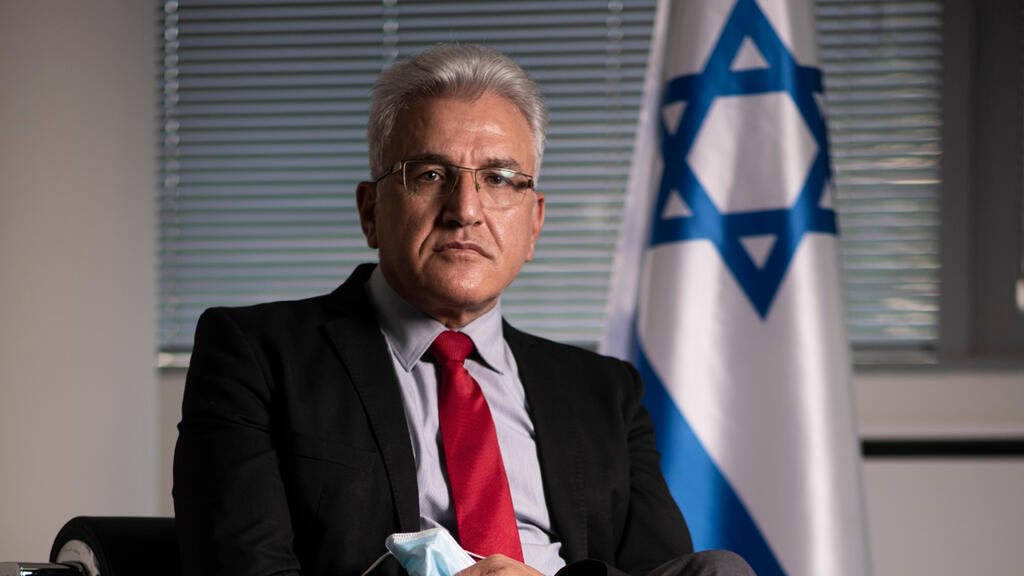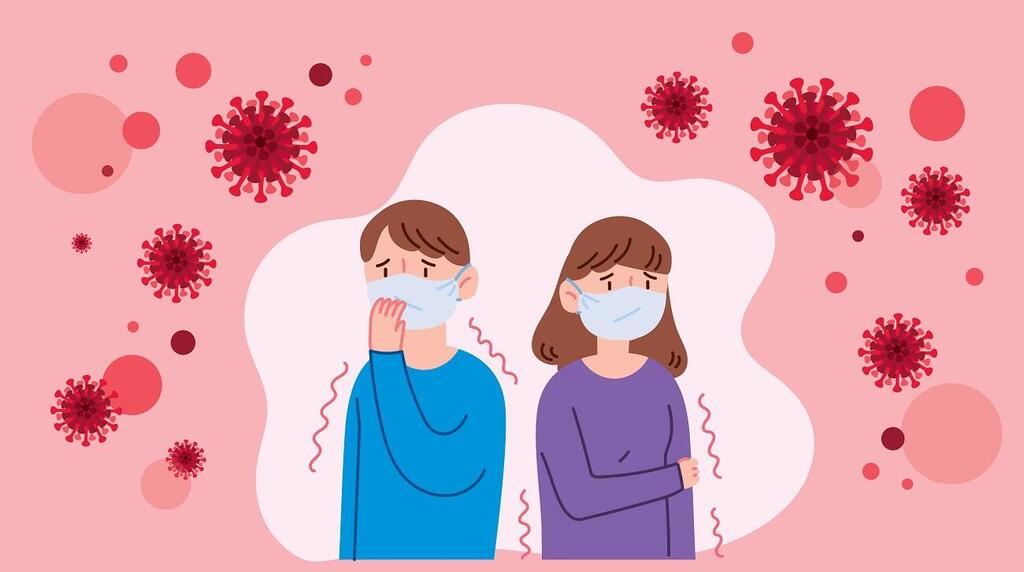Getting your Trinity Audio player ready...
Israel’s COVID czar Prof. Salman Zarka told Ynet on Tuesday that he believes the pandemic is still far from over.
“Unfortunately, COVID is still here,” he said. “I think what changes is our ways of dealing and treating it without looking at it like a global pandemic. I think we’ll be in a better place in 2023, where we may see COVID as just another disease treated by the health system, like many others.”
When asked if he was preparing to leave his position, Prof. Zarka said: “I have several other jobs and positions to fill, but when COVID remerges we still had to care for things like vaccines, medications and policies – and that’s what we do.”
“We can see a rise is morbidity, much due to kids returning to school and coming into contact with adults. The number of confirmed cases rose by 50% since the start of September," Zarka said. "The dominant variants are BA.4 and BA.5, both originating from the Omicron strain, but it’s too early to say whether we are now entering another wave,” he said.
“Usually a wave begins after a new variant is introduced, they exist, but we don’t see a significant increase in illness caused by them, in Israel and the world. I think it’s time to stop counting waves and vaccines. COVID is here to stay, and hospitals are caring people with severe cases of it,” he said.
"We actually saw a downward trend in severe cases and hospitalizations in September, but I say again: COVID is still with us. The coming winter could cause both a rise in COVID and in the seasonal flu. The winter is still not here, but the viruses are,” Zarka said.
Zarka did not expect Israel to face another lockdown. "We have three years of experience in handling COVID, and understand that it is here to stay,” he said.
The senior health official says isolation is still necessary for those infected by the virus. "We can see a rise in both COVID and flu around the world, and in this situation self-isolation is a good measure,” he said.
"Unlike in other waves, the Health Ministry does not call the phones of those sick, and the police does not arrive to check on them. I think once the winter passes, we will reconsider and may remove the need for isolation, should no new variants appear and change the situation,” he said.
Zarka recommends to Israelis, to get vaccinated for COVID and says more vaccines may be offered if new variants arrive. "We purchased new vaccines a week ago, which is developed to combat Omicron. Previous vaccines were based on earlier variants like Alpha and Beta, meaning their efficacy was diminished once Omicron arrived.”
The vaccines are here and will be delivered to health maintenance organizations this week, for the elderly population aged 65 and above, and people with underlying health conditions to receive vaccines against bo" he said. "The elderly and at risk population should get vaccines for both COVID and the flu,” he said.
Prof. Zarka also said that whoever wants to receive the new vaccine will be able to do so. “Everyone who wants to minimize their chances of getting seriously ill can get vaccinated, but the emphasis is put on populations in high risk of a serious disease. We have to protect them,” he said.
“Israelis are used to the flu shot every year because new variants of the flu appear every winter," he said. "COVID has more variants, so I’m not sure whether we’ll have to take a vaccine every year, or every few months,” Zarka said.
The coronavirus czar explained that although Israel is suffering less from the pandemic, other countries such as China and India are far worse off, which is why he believes the World Health Organization is still treating the virus spread as a world wide pandemic.
"Millions are still quarantined, and the bigger picture is still unclear. Infection rates from one country to another are still high. We all want our lives back, but we need to be careful, especially around those with high risk of developing serious illness from COVID.”
Zarka urged the public to get vaccinated. he said the flu shots are already available to the public and the new COVID vaccines will be available in the coming days.
He also called on all Israelis to consider those at high risk during the Jewish High Holidays and take the necessary precautions to avoid spread of the virus.





